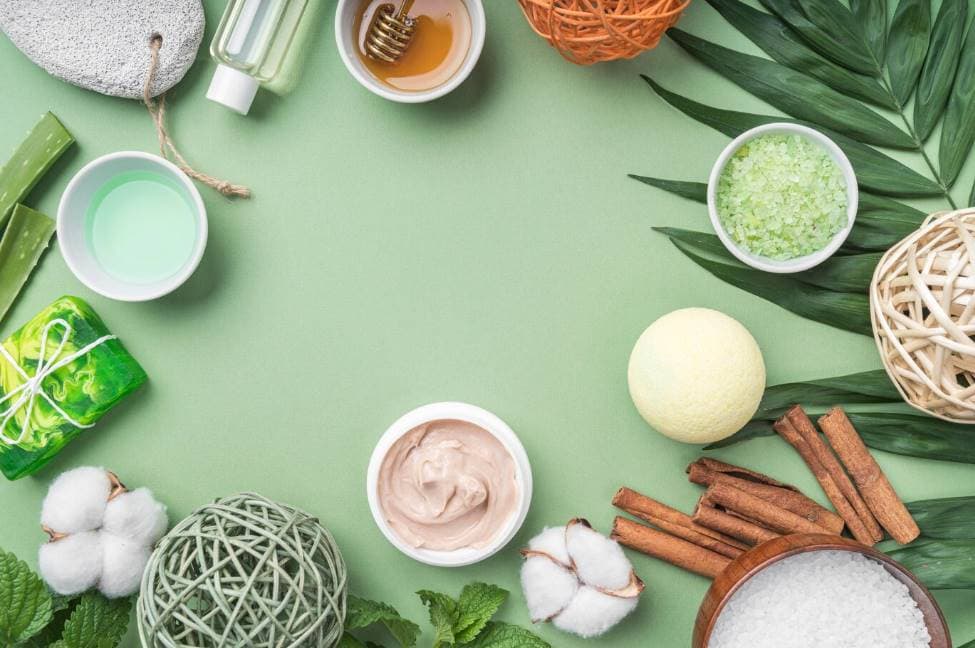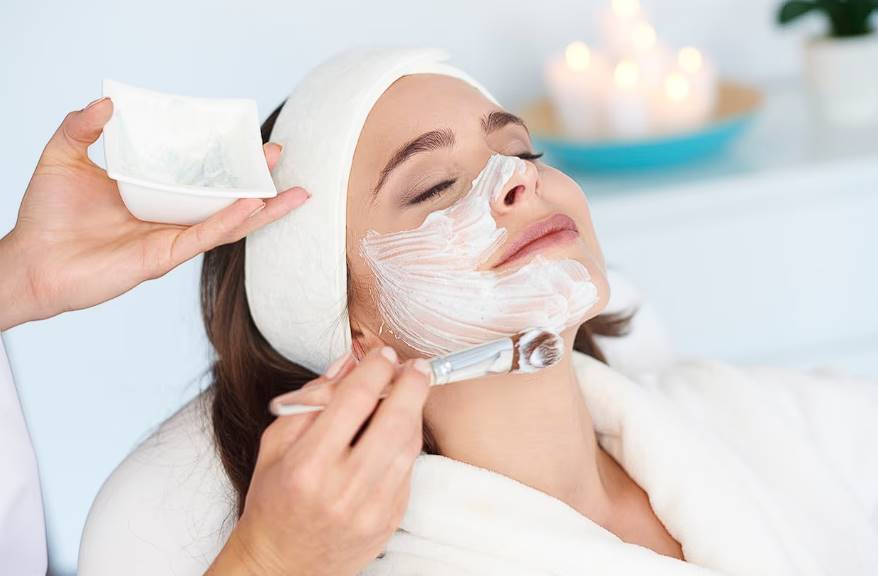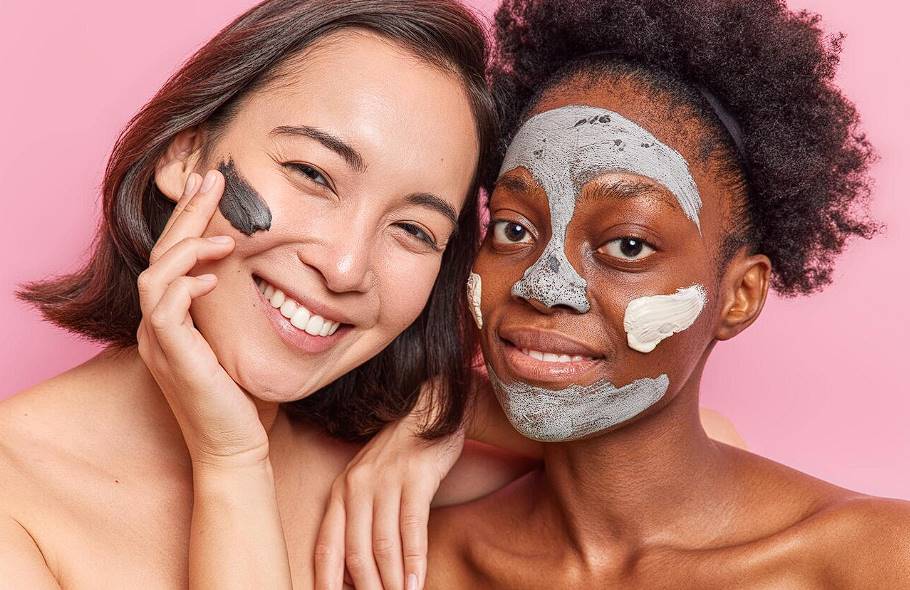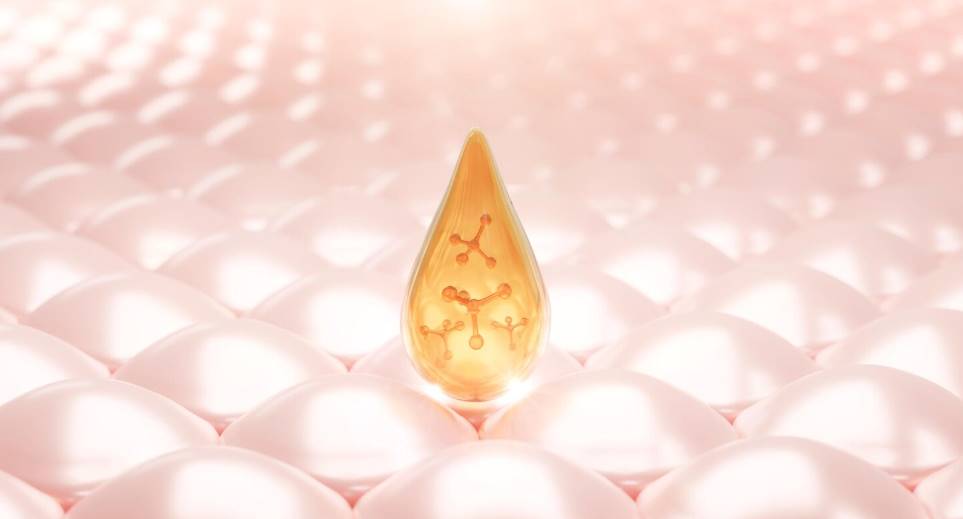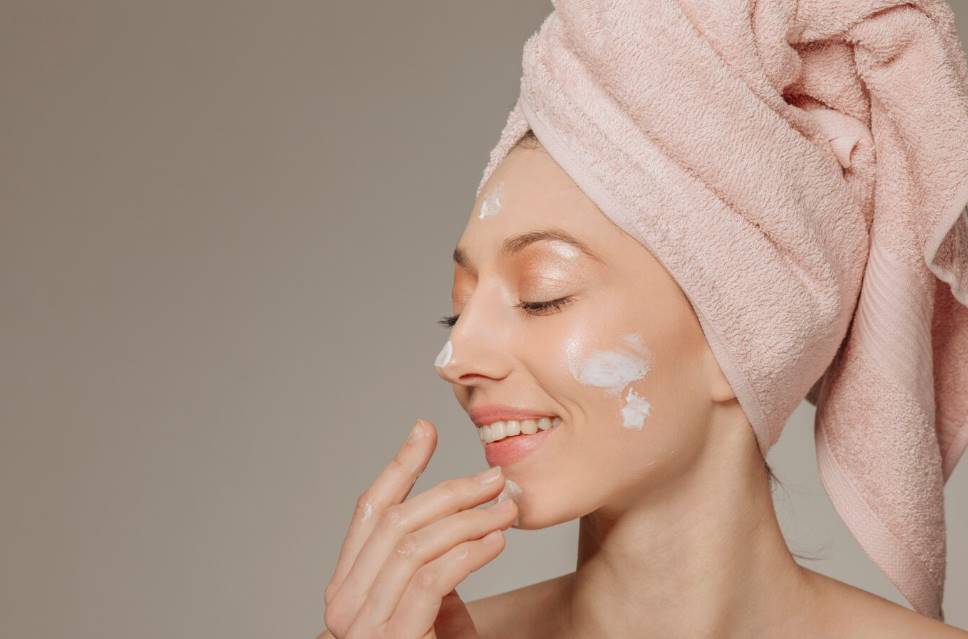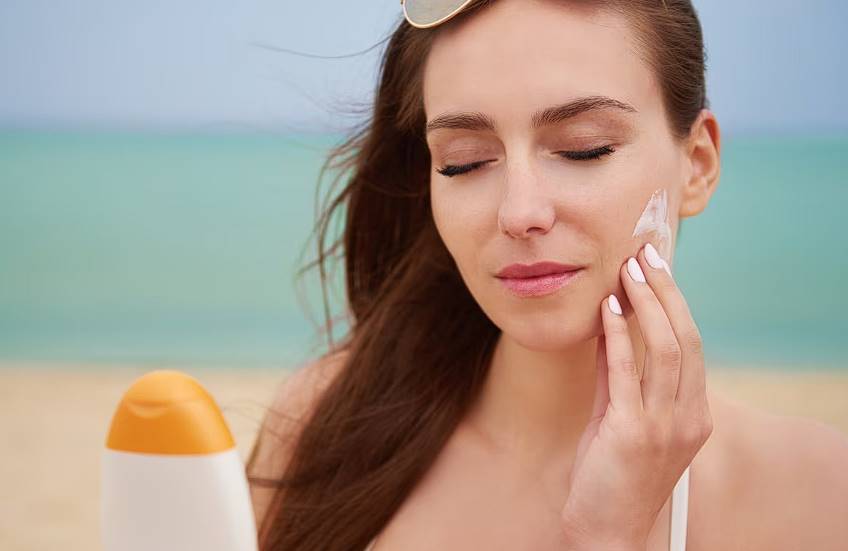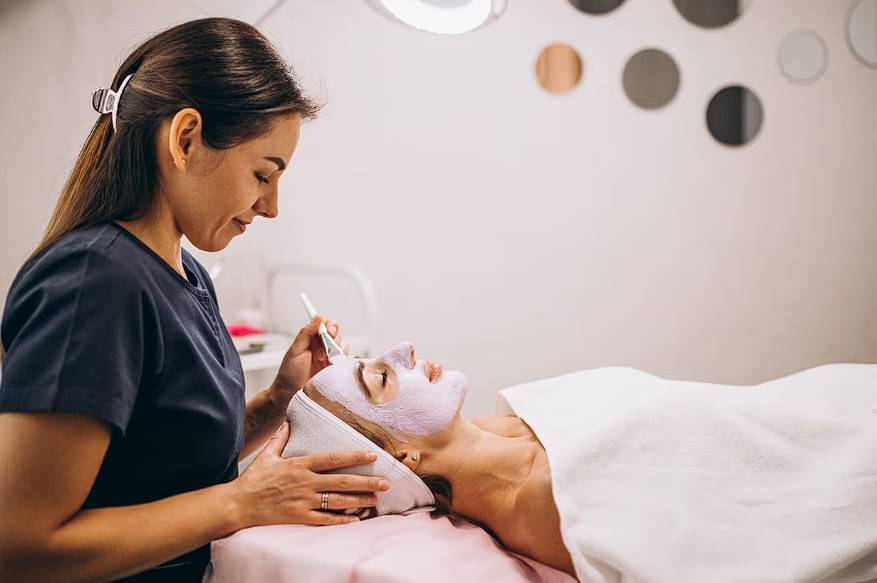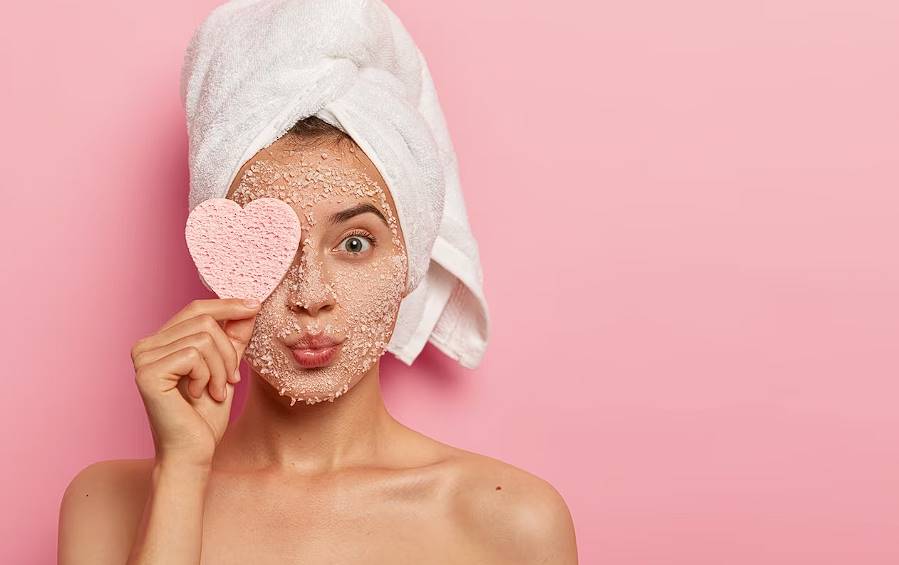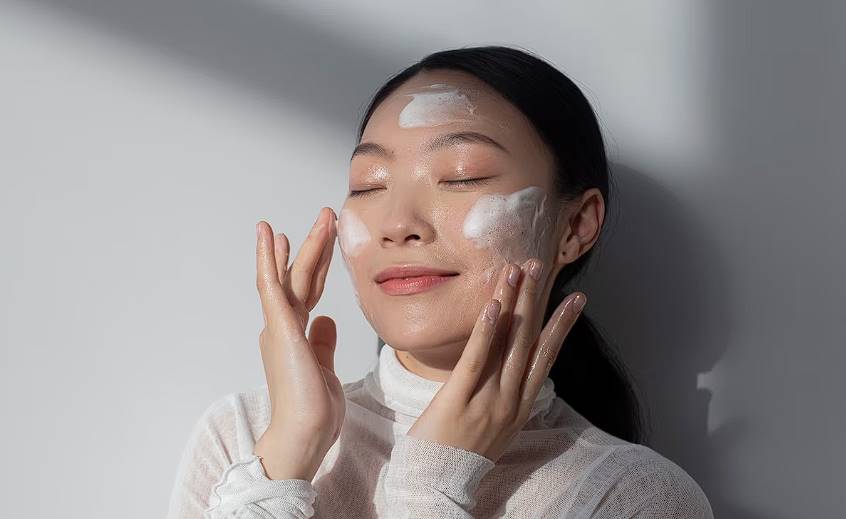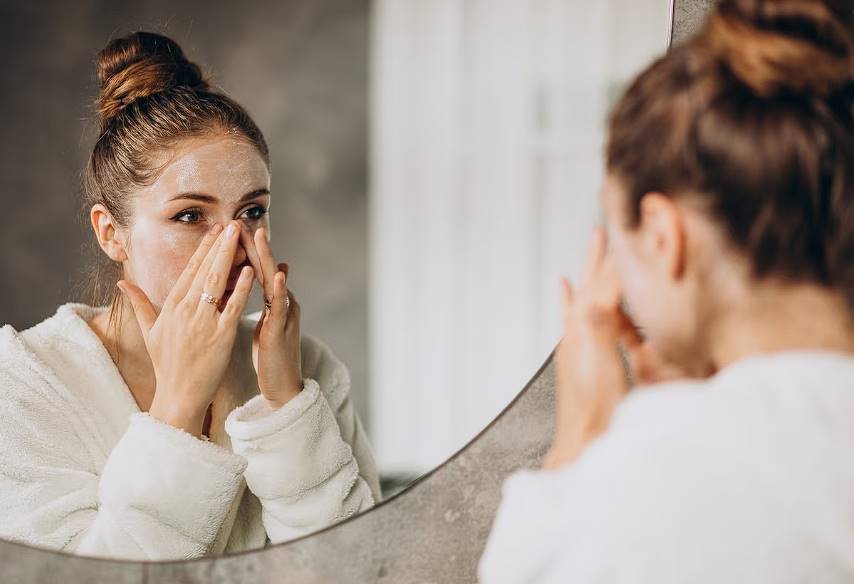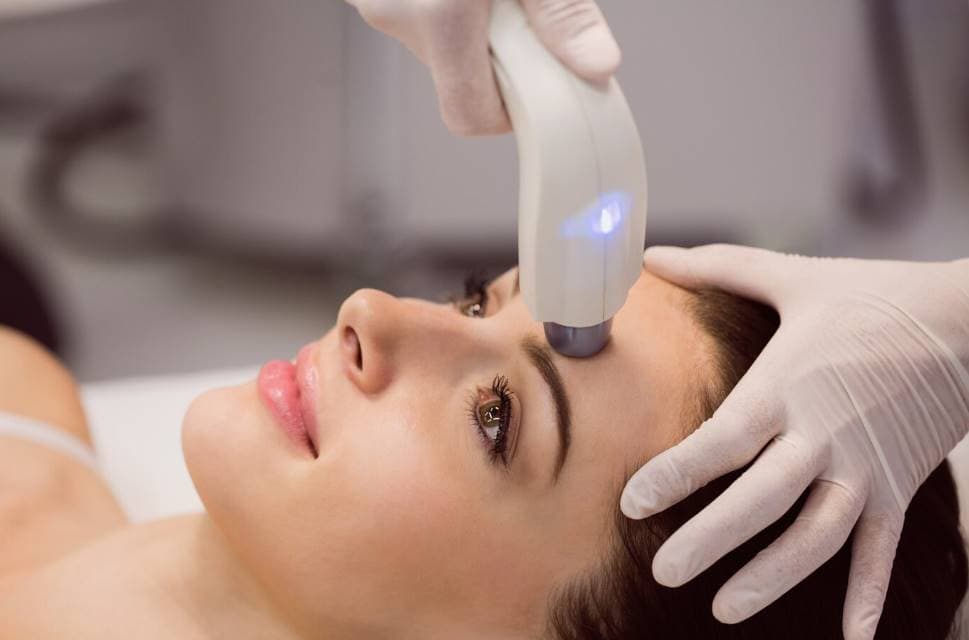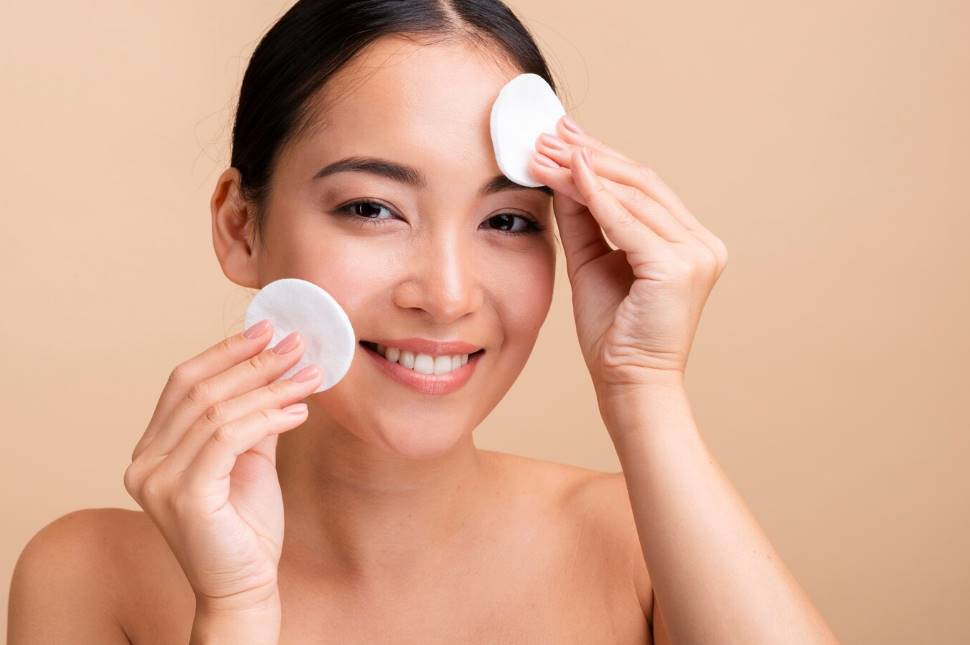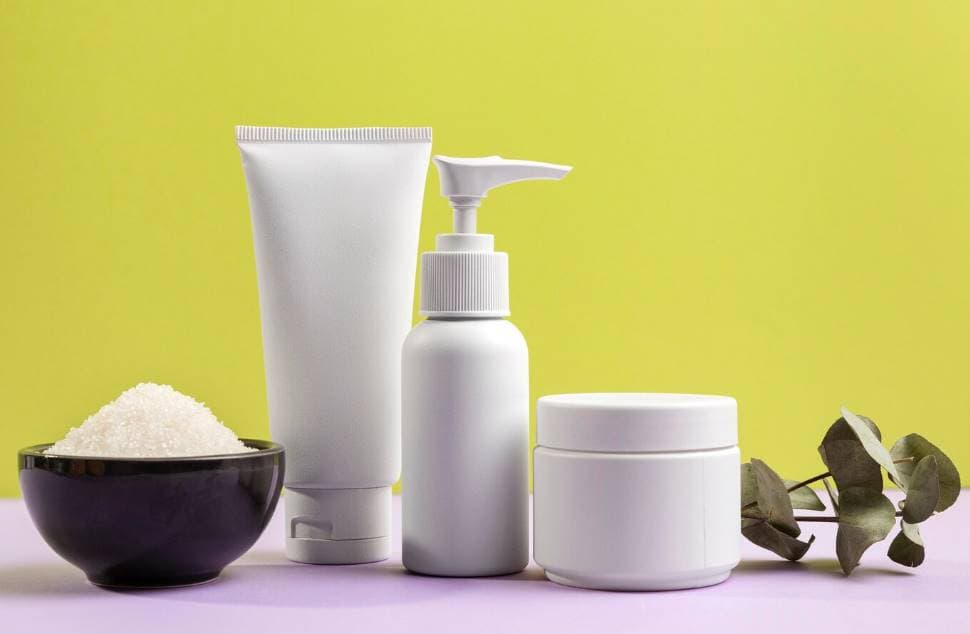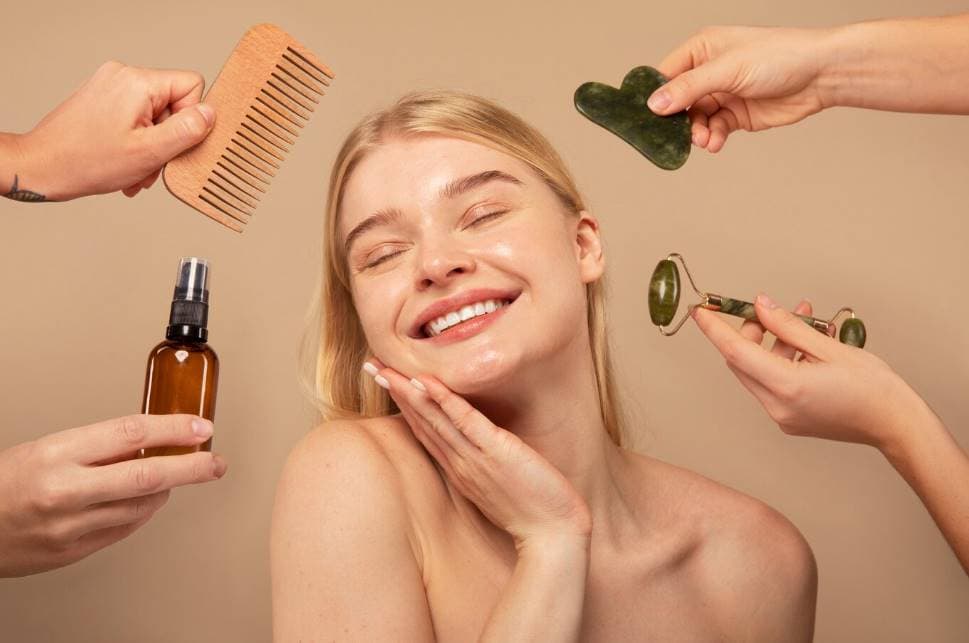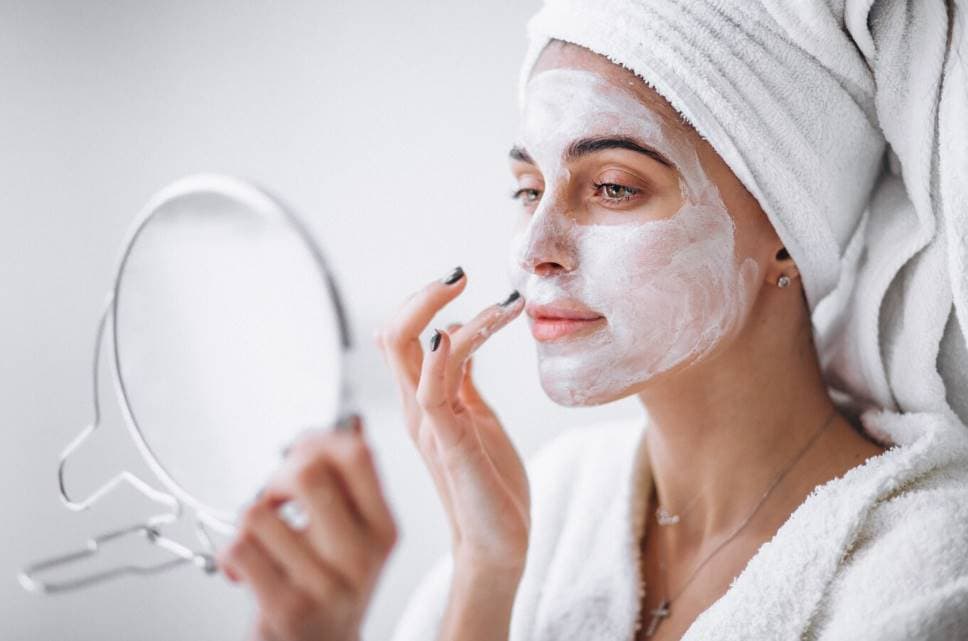In recent years, skincare products that are organic and natural have become more popular and in demand in the beauty industry. As people learn more about the risks of synthetic ingredients, they are looking for safer and better alternatives for the environment.
People buy these products because they want their skin to look healthier and brighter, but what is happening beneath the hype? This article will look at organic and natural skincare, dividing facts from stories and giving you the information you need to make smart decisions about your routine.
The Rise of Natural Beauty
There has been a big shift in the beauty industry towards organic and natural skin care products. More people are looking for alternatives to traditional cosmetics full of chemicals. But what do "natural" and "organic" mean regarding skincare products?
Natural and organic items aren't always safe, so that's something to remember. Even organic or natural products can cause skin irritation and allergic reactions. Even more concerning, some organic products don't work or don't do what they will, like stop aging, brighten, tone, treat acne, or keep skin moist.
How Do Skin Care Products Work?
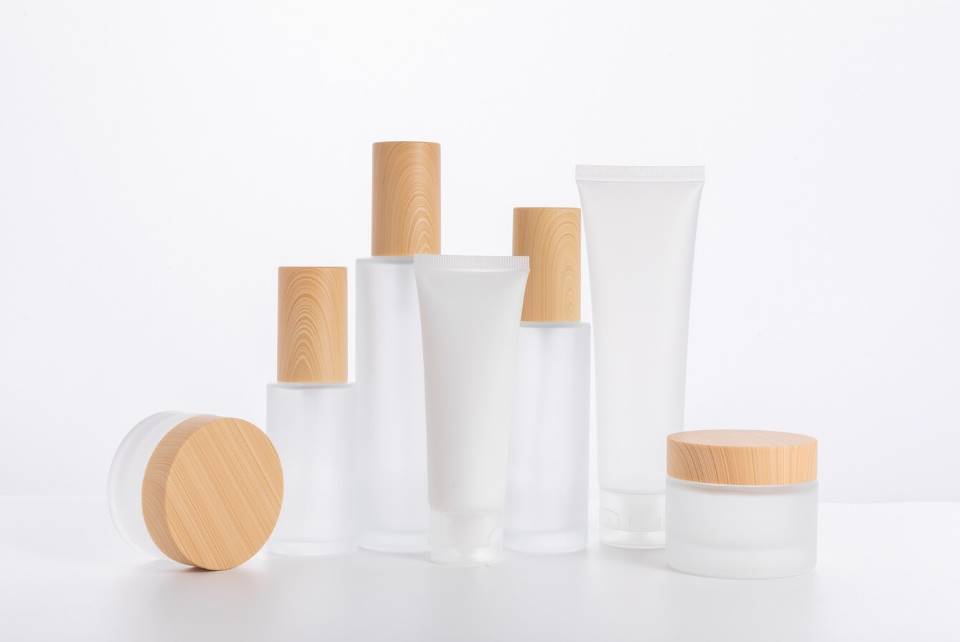
The skin has an ideal barrier that keeps harmful things from getting in. Products we put on our skin aren't always absorbed by our bodies, just like the food we eat. Very small molecules are the only ones that can get into the skin. For instance, some water molecules are not absorbed, and numerous molecules in unnatural products dissolve slowly, in small amounts, or not at all.
Many synthetic substances used in skincare items are just ways to get the active components into the deeper parts of the skin. If not, some ingredients wouldn't be absorbed, and the product wouldn't work either.
So, if these synthetic materials are absorbed through the skin, do they hurt the body? The answer is... perhaps.
Some "Natural" and "Organic" Skincare Myths:
Organic and Natural Mean the Same Thing
People often think that "natural" and "organic" mean the same thing. In reality, they both mean something different. "Natural" usually refers to things that come from plants or minerals and don't have any added chemicals. However, the term is not standardised, so companies can use it loosely to market products that have some natural ingredients but also harmful chemicals.
On the other hand, "organic" means a product is made from ingredients grown without synthetic pesticides or fertilisers.
Natural Always Means All-Natural
Consumers might think that products that use words like "natural" and "organic" don't have any added chemicals. Some businesses use these beauty "buzzwords" to get people to buy their products, even if they aren't all-natural.
On cosmetic labels, the words "herbal," "natural," and even "organic" mean nothing by law. Also, skincare items are not subject to regulation like food products, which say they are "natural" or "organic." Because of this, many skin care products have the words "natural" or "organic" in their brand names or on the packaging, even though they may contain chemicals that aren't natural.
All Natural and Organic Skin Care Is Always Safe
Most people think organic and natural skincare products are safer than synthetic alternatives. However, it's important to remember that not all natural components are risk-free. Some people may be sensitive to certain parts of plants, like essential oils, which can cause itchiness or other problems. To avoid allergic reactions, doing a patch test before trying out new products is important.
Also, some natural ingredients can interact with medications, so talking to a dermatologist or other medical professional is important, particularly if you already have skin or other health problems.
Organic Products Fail to Perform
So far, no research has shown that natural or organic skin care products work better or worse than others.
Science is the proof. Even though everyone has their own opinion on how well organic products work, looking for skincare companies that test their products in independent research and then report the results can help separate real product results from empty marketing claims.
Homemade Natural Skin Care Is Always Better
Natural skin care remedies made at home have become more popular as the DIY (Do It Yourself) movement has grown. Some do-it-yourself recipes can work, but many can hurt the skin. For example, lemon juice is often suggested as a natural way to treat acne and dark circles, but its acidity can irritate the skin and make it sensitive to sunlight.
Natural and organic products made by professionals go through a lot of testing and strict quality control to ensure they are healthy and efficient for customers. DIY recipes may be fun, but if you need to know what you're doing, using only homemade skin care products can do more damage than good.
Is There a Difference?
Did you know that up to 60% of what we put on our skin gets taken in? People aware and careful about how they care for their skin often hear the terms "natural cosmetics" and "organic skincare." Would you like to determine the difference and determine what's best for you?
Find Out the Truth About Skin Care Products
People all over the world strive to live more happily and improve the quality of their lives. It's not a trend but a movement. People think that the health of our skin is one of the most important things that affects not only our health and physiological quality of life but also our psychological and mental well-being, which affects our confidence and sense of ability. It's necessary to learn more about how to care for your skin.
Using products that say "natural" on them won't guarantee good results, and you should never take chances with your skincare routine. Instead, look for ingredients that have the molecules your skin needs.
There Are Dangerous Chemicals in Skin Care Products.
Many skin care products contain things that could be harmful, like toxic pesticides and preservatives that are potentially toxic substances, products that are bad for the environment, and parabens, which are a group of substances used as preservatives in pharmaceutical, cosmetic, and food products. The goal of the all-natural skincare motion is to avoid putting anything on the skin that could be harmful.
The problem is that there needs to be more research to say that all artificial ingredients are bad for you. Also, products that use the word "natural" as a marketing tool aren't regulated so that they can have the same synthetic components as any other item.
Since so many substances and goods are on the market today, it can be hard for the average person to tell what is safe and what isn't. Even if you find a 100% natural and organic product, you can't be sure that it won't irritate your skin.
But Do Skincare Ingredients Get Under Your Skin?
Another issue to consider is whether or not the "natural" or not ingredients in skin care products get into your body. A lot of those molecules are too big to get through the skin. But science has grown more intelligent and is finding ways to trick the skin into letting more in so that it works better.
One good thing about this is that it might make using less of an active component possible. On the other hand, people who believe in natural beauty say that fragments that get into the skin can harm the body as a whole. Even though the FDA says that a few of these components of concern, like phthalates and parabens, are harmless, research shows that they may disrupt the endocrine system or chemicals that impact hormones and can raise your risk for developing cancer or fertility problems.
Why Should You Use Natural Skin Care?
Safe for Skin
When you put lotion on your skin, substances slowly enter your bloodstream. So, they affect a lot of the ways the body works. If the components are good for you, they will help you, but if they are bad for you, they will hurt your body. So, if you use natural and organic skincare items, you'll avoid all the bad effects on your health, making you feel and look better.
Safe for Environment
Synthetic chemicals hurt not only people's skin but also the skin of animals and plants that come in contact with them. If these artificial products enter the environment, they could be very bad for nearby ecosystems. Also, making traditional skincare products causes a lot of pollution, which has a bad environmental effect.
Safe for Animals
Sadly, many companies, including big names, test their skin care products on animals. Manufacturers of natural skin care products don't test their products on animals. This keeps us from contributing to damaging and evil practices.
So, What Is the Verdict on Natural Skin Care?
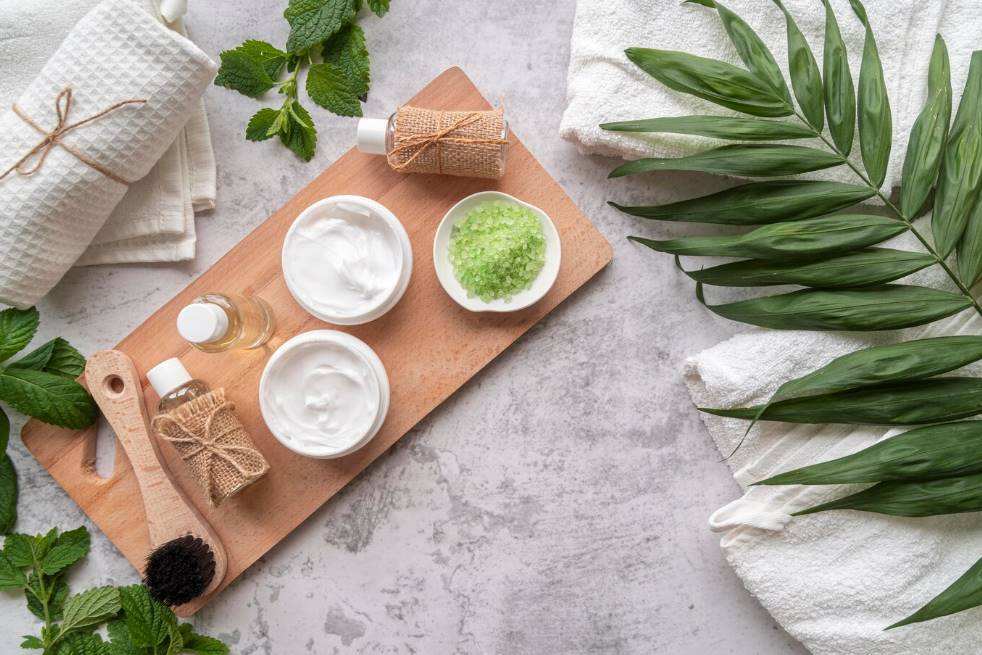
Try a more organic skincare routine to clean up what you use or reduce your ecological impact. But feel free to get rid of everything made of plastic right away. The most significant thing is to find what's best for your skin without triggering irritation or allergic reactions.
If you shift to natural products, keep this advice in mind.
- Taking care of your skin doesn't have to cost a lot. A lot of skincare items that are natural and organic cost more than most products.
- Equally essential as what you apply to your body is what you put into it. A healthy diet of whole, clean foods is important for healthy skin. There are a lot of "superfoods" that can help keep your skin clear and fresh from the inside out.
- The back label of the container is much more essential than the front label. "All natural" can be said about any product, but the list of ingredients doesn't lie. Look up an ingredient if you need to know what it is. Even apps can help you find the most organic and natural items.
Conclusion
The beauty industry has seen a surge in the popularity of organic and natural skincare products, as people seek safer alternatives to traditional cosmetics. However, it's important to remember that these products aren't always safe, as they can cause skin irritation, allergic reactions, and may not work as intended.
Skincare products work by absorbing small molecules into the skin, and many synthetic substances used in skincare products are just ways to get active components into deeper parts of the skin.
Some "natural" and "organic" skincare myths include the belief that all natural and organic skincare products are always safe, but this is not always the case. Some people may be sensitive to certain parts of plants, which can cause itchiness or other problems. Additionally, some natural ingredients can interact with medications, so consulting a dermatologist or other medical professional is crucial.
No research has shown that natural or organic skin care products perform better or worse than others. It's essential to look for skincare companies that test their products in independent research and report the results to separate real product results from empty marketing claims.
Homemade natural skin care remedies have become more popular, but they can also be harmful to the skin. Professionally made products undergo rigorous testing and strict quality control to ensure their effectiveness.
Skincare products often contain harmful chemicals, such as toxic pesticides, preservatives, and parabens. The goal of all-natural skincare is to avoid harmful substances, but there is a need for more research to determine the safety of synthetic ingredients. Additionally, products labeled "natural" are not regulated, making it difficult to determine what is safe and what isn't.
Skincare ingredients can get under the skin, but science is finding ways to trick the skin into allowing more in for better results. While some components, like phthalates and parabens, are harmless, research shows they can disrupt the endocrine system and increase the risk of cancer or fertility problems.
Natural skincare is safe for skin, as substances enter the bloodstream and affect the body's functions. It is also safe for the environment, as synthetic chemicals harm not only humans but also animals and plants that come in contact with them. Additionally, natural skincare products don't test on animals, preventing harmful practices.
To find the best skincare for your skin without triggering irritation or allergic reactions, try a more organic skincare routine and eliminate plastic products. A healthy diet of whole, clean foods is essential for healthy skin, and "superfoods" can help keep it clear and fresh. The back label of a product is more important than the front label, and apps can help find the most organic and natural items.
Content Summary
- In recent years, there has been an increased demand for organic and natural skincare products.
- People are becoming more aware of the risks associated with synthetic ingredients.
- The beauty industry has seen a shift towards organic and natural skincare.
- "Natural" and "organic" in skincare do not always mean they are safe.
- Some organic products might not deliver the promised results.
- The skin has a barrier that prevents many substances from entering.
- Only very small molecules can penetrate the skin effectively.
- Some synthetic substances are used to enhance the absorption of active ingredients.
- The term "natural" refers to products derived from plants or minerals without added chemicals.
- "Organic" products are made from ingredients grown without synthetic pesticides or fertilisers.
- Companies often use the terms "natural" and "organic" loosely.
- Not all skincare products labelled as "natural" or "organic" are regulated.
- It's a misconception that all natural and organic skincare is always safe.
- Essential oils, while natural, can cause allergic reactions for some individuals.
- No definitive research proves that organic products perform better or worse than others.
- Homemade skincare remedies are not always safer or more effective.
- For instance, lemon juice, a popular DIY remedy, can make skin sun-sensitive.
- It's important to understand the difference between "natural cosmetics" and "organic skincare".
- Many people prioritise their skin health for both physical and psychological well-being.
- Using a product labelled "natural" doesn't guarantee its effectiveness.
- Some skincare products contain potentially harmful chemicals like parabens.
- The aim of natural skincare is to avoid harmful ingredients.
- Not all artificial ingredients are proven harmful, and not all "natural" products are safe.
- It's a challenge for consumers to discern between safe and harmful products in the market.
- There's debate over whether skincare ingredients truly penetrate the skin and enter the body.
- Some believe that ingredients can harm the body over time.
- Research suggests certain ingredients might disrupt the endocrine system.
- Natural skincare products are believed to be safer for the skin.
- Synthetic chemicals can be harmful to the environment.
- Conventional skincare manufacturing often results in environmental pollution.
- Many big-name companies still test their products on animals.
- Natural skincare brands typically avoid animal testing.
- Considering a shift to organic skincare can help reduce ecological impact.
- Switching to natural products should be done with care to avoid skin issues.
- Natural and organic skincare products can be more expensive.
- A healthy diet plays a significant role in skin health.
- Consuming "superfoods" can promote clear and healthy skin from within.
- The list of ingredients on a product provides more truth than front-label claims.
- Products labelled "all natural" may not always be genuinely natural.
- There are apps available to help consumers find genuinely natural products.
- People worldwide are prioritising their health and quality of life.
- Many skincare products contain potentially toxic substances and preservatives.
- Some natural products made at home can be damaging if not used correctly.
- The FDA considers some controversial ingredients, like phthalates, as safe.
- Natural skincare products promote both personal health and environmental safety.
- Synthetic chemicals can negatively impact ecosystems.
- Natural skincare production typically results in less pollution.
- Checking the ingredient list is essential for informed skincare choices.
- A shift to natural skincare doesn't mean discarding all synthetic products immediately.
- The health of our skin affects our mental well-being and overall confidence.
Frequently Asked Questions
Products made from natural and organic ingredients are usually good for all skin types, even sensitive skin. But, choosing products that are right for your skin type and concerns is important.
Organic skin care products may not last as long as products with artificial preservatives. Check the item's expiration date and store it correctly to get the most use out of it.
Many natural ingredients are good for skin care and have been used for centuries. However, their effectiveness may depend on the type and condition of your skin.
Look for certifications from well-known groups like the USDA Organic or Ecocert on the product label. These certifications show that the product meets certain standards for being organic.
You can use things like coconut oil, honey, and aloe vera to make natural skin care products at home. But it's important to research and follow recipes carefully to ensure they are safe and work.
